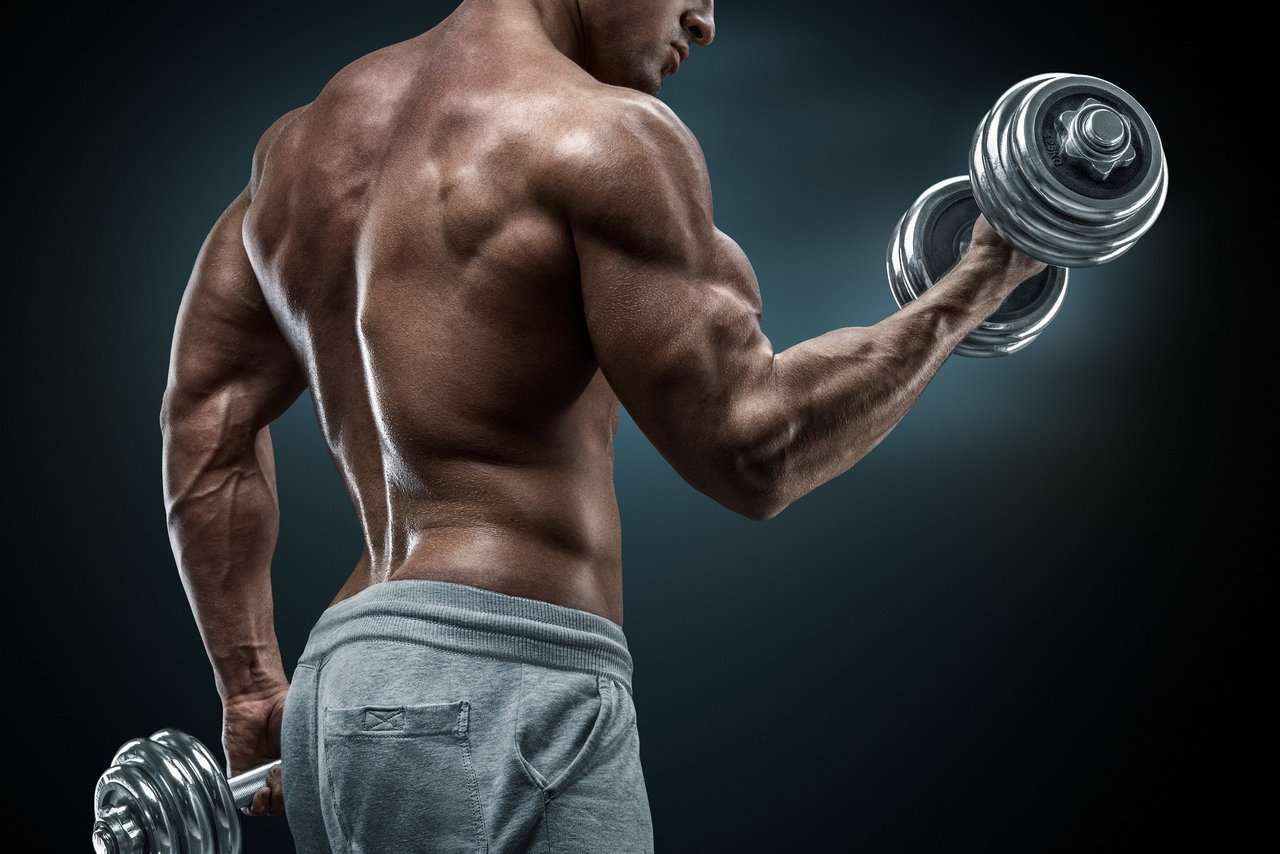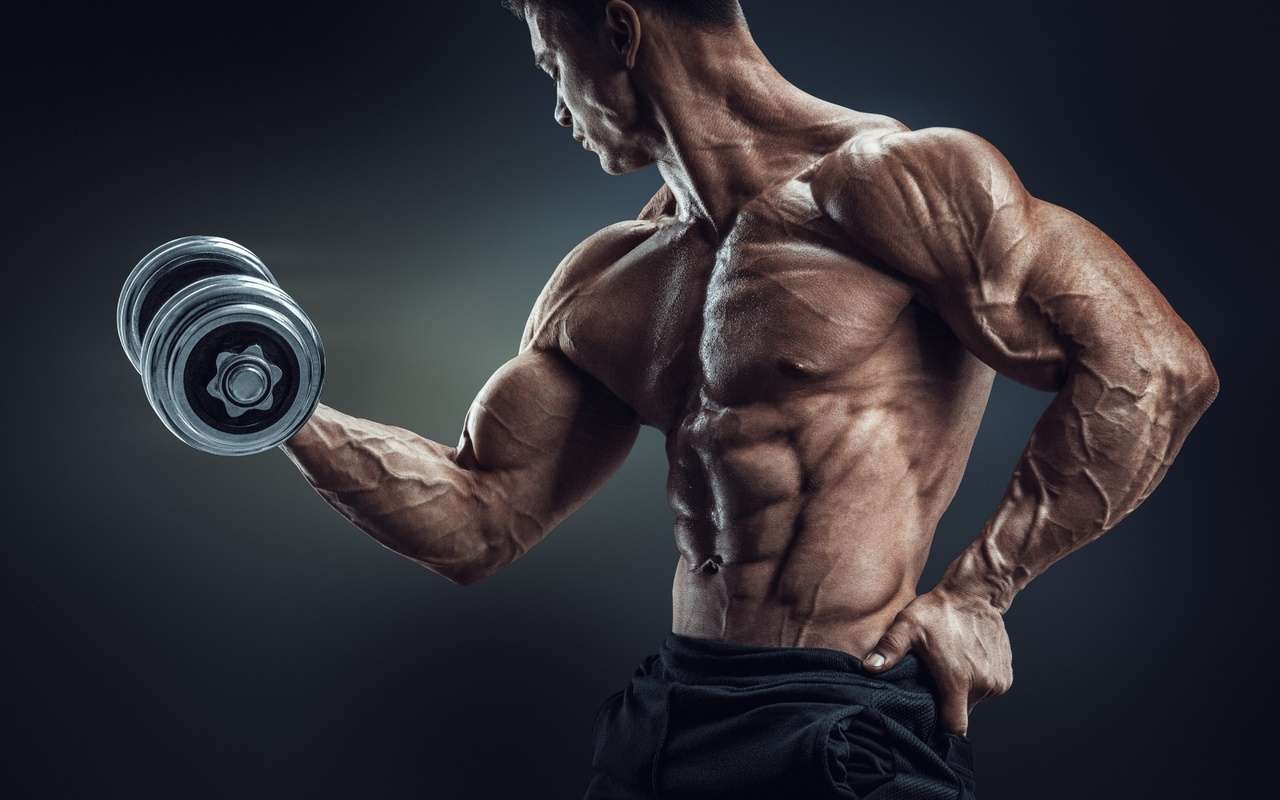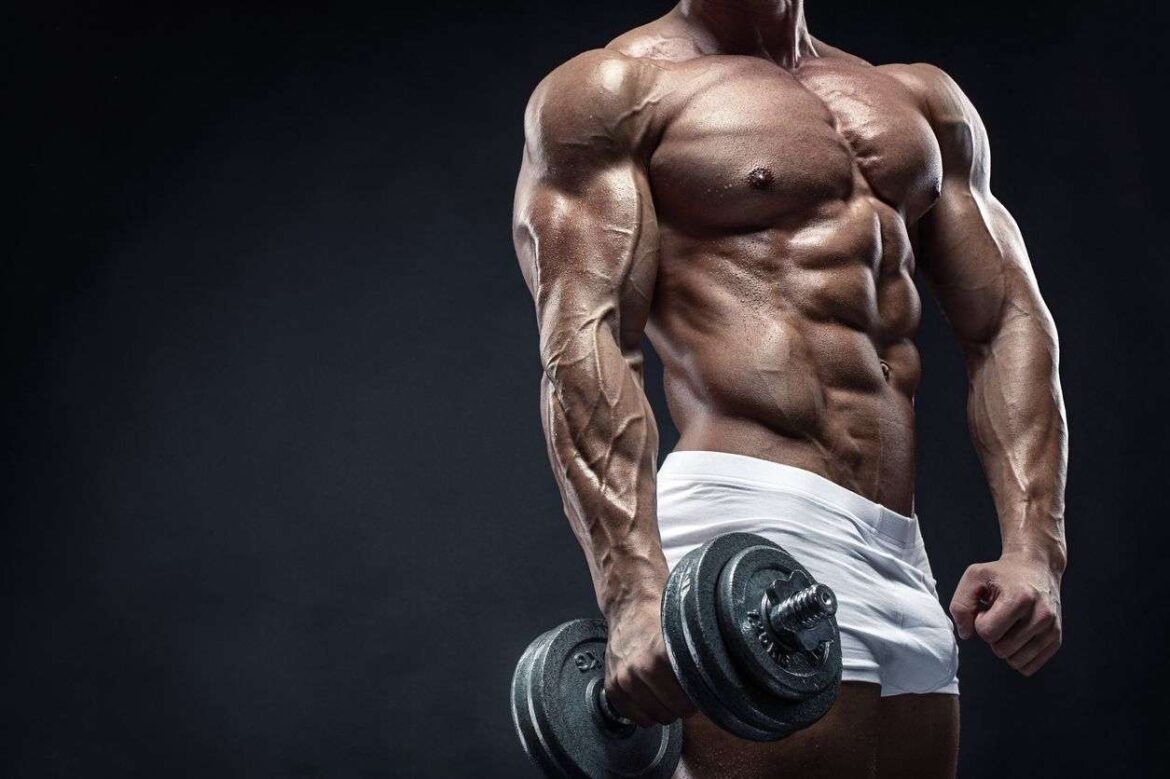As a fitness enthusiast, I’ve encountered various discussions about genetics and bodybuilding. It’s essential to approach this topic with sensitivity and an understanding that individual potential varies widely, regardless of racial or ethnic background. Let’s explore the factors that contribute to bodybuilding success.
Introduction
What Race Has The Best Genetics For Bodybuilding: To clarify that there is no single “race” that inherently has the best genetics for bodybuilding. Bodybuilding success is determined by a complex interplay of genetic factors, training, nutrition, dedication, and many other variables. Attempting to attribute bodybuilding prowess to a specific racial or ethnic group is both scientifically unsound and ethically problematic. Bodybuilding history is replete with champions from diverse backgrounds.
Genetics do play a role in bodybuilding, as they do in any athletic endeavor. Genetic potential for bodybuilding varies significantly within and among all racial and ethnic groups. Some individuals may have genetic predispositions that make it easier for them to gain muscle mass, others may have advantages in terms of endurance, agility, or other athletic traits. Genetic potential can vary widely within the same racial or ethnic group.
Success in bodybuilding is driven by an individual’s commitment, hard work, and discipline, regardless of their racial or ethnic background. The diversity of the sport itself showcases champions from various backgrounds, debunking any notion that one race has superior genetics for bodybuilding. To recognize and appreciate the talent and dedication of athletes from all walks of life, promoting inclusivity and fairness in the sport.

What genetics are best for bodybuilding?
So if your genetic test showed you have the functional ACTN3 gene, it means you probably have an advantage in strength training and bodybuilding. ACTN3 is just one of several genes that contribute to an individual’s ability to put on muscle mass and gain muscle strength.
Genetics can certainly play a role in bodybuilding success, That there is no one-size-fits-all answer to what genetics are “best” for bodybuilding. The influence of genetics on bodybuilding is multifaceted, and it varies from person to person.
Muscle Fiber Composition: Some individuals may have a higher proportion of fast-twitch muscle fibers, which are associated with explosive strength and muscle growth. This genetic trait can be beneficial for bodybuilding.
Metabolism: A fast metabolism can help individuals burn fat more efficiently, allowing for a leaner and more defined physique.
Bone Structure: Genetic factors can influence an individual’s bone structure, which can affect their overall body shape and proportions.
Recovery Ability: Some people naturally recover more quickly from intense workouts, which can enable them to train more frequently and make faster progress.
Hormonal Profile: Genetic variations can impact hormone levels, including testosterone and growth hormone, which are critical for muscle growth.
What race builds muscle faster?
Strength training does not alter subcutaneous or intramuscular fat, regardless of sex or racial differences. Although men exhibit a greater muscle hypertrophic response to strength training than do women, the difference is small. Race does not influence this response.
That one particular race builds muscle faster than others. Muscle development is a complex biological process influenced by genetics, lifestyle, nutrition, and training habits. There is no scientific evidence to support the idea that any race inherently builds muscle faster than another.
Muscle-building potential varies widely among individuals within all racial and ethnic groups due to genetic diversity. Genetics do play a role in muscle growth, but it’s only one piece of the puzzle. Other factors like individual variation in hormones, metabolism, and response to exercise are equally, if not more, determinants of muscle development.
Efforts to categorize races or ethnicities based on muscle-building potential are not only scientifically unfounded but also perpetuate harmful stereotypes and discrimination. It’s crucial to promote inclusivity and fairness in all sports and fitness pursuits, emphasizing that anyone, regardless of their racial or ethnic background, can achieve significant muscle growth with dedication, hard work, and appropriate training and nutrition.
Attributing muscle-building capabilities to a specific race is an inaccurate and harmful oversimplification. Success in muscle development is a result of individual effort, discipline, and commitment, transcending any racial or ethnic categorization.
Do tall people have better muscle genetics?
Height plays no significant factor in a person’s ability to grow muscle. Whilst shorter people may appear to have gained more muscle in less time, it’s simply because they need less muscle to fill out proportionally. In contrast, a taller individual with longer limbs may take more time to fill out.
Tallness or height is not a definitive indicator of better muscle genetics. Muscle development is influenced by a complex interplay of genetic factors, and some of these factors can be correlated with height, they do not necessarily determine one’s ability to build muscle.
Height can influence an individual’s muscle-building potential in several ways. Taller individuals tend to have longer limbs and a greater lever arm, which can make it appear as though they have less muscle mass compared to someone with shorter limbs. This can create the impression that they have difficulty building muscle. That muscle size and strength are not solely dependent on limb length.
Genetic factors related to muscle development include muscle fiber type, hormonal profile, metabolism, and muscle protein synthesis. These factors can vary widely among individuals, irrespective of their height. Some tall individuals may have favorable genetic traits for muscle growth, some shorter individuals may possess the same advantages.
Ultimately, success in building muscle is determined by an individual’s genetics, lifestyle, nutrition, training regimen, and dedication. It’s crucial to avoid making assumptions about one’s muscle-building potential based solely on their height, as this oversimplifies the complex biology of muscle development and the considerable individual variation that exists.
Which race has the best muscles?
It is already widely known that blacks, despite having a superior muscle quality compared to other ethnic groups, have greater muscle loss from the age of 60, reaching up to 28% greater than that observed in white people.
To emphasize that there is no single “race” that can be said to have the “best” muscles. Muscle development is influenced by a variety of factors, including genetics, lifestyle, training, nutrition, and individual commitment. Attempting to attribute the quality or superiority of muscles to a specific racial or ethnic group is both scientifically unsound and ethically problematic.
Human genetics are incredibly diverse, and muscle development can vary significantly among individuals within and among all racial and ethnic groups. Genetic factors related to muscle development, such as muscle fiber composition, metabolism, and hormonal profiles, can vary widely across the human population. The concept of “best” muscles is subjective and depends on individual goals and preferences, whether it’s for strength, aesthetics, or athletic performance.
It’s crucial to move away from making broad generalizations about racial or ethnic groups when discussing physical traits. Such generalizations are not only scientifically unfounded but also perpetuate harmful stereotypes and discrimination. We should promote inclusivity and respect for athletes and individuals from all backgrounds, recognizing the diverse talents and unique journeys of each individual. Success in muscle development, as in any endeavor, is primarily a result of an individual’s hard work, dedication, and passion, rather than their racial or ethnic background.
Does race affect body type?
Like other genetic factors, your ethnicity can shape your health, body composition, body type, and risk of chronic illness. Different ethnic groups and races tend to have slightly different body types and be more or less at risk for different health conditions.
Race itself does not determine an individual’s body type. Body type is primarily influenced by genetics, lifestyle, diet, and other individual factors. There may be some broad generalizations about certain physical characteristics that are more common in specific racial or ethnic groups, these generalizations do not hold true for everyone within those groups.
Human genetics are incredibly diverse, and people from all racial and ethnic backgrounds can have a wide range of body types. Factors like bone structure, muscle mass, fat distribution, and metabolism are influenced by an individual’s unique genetic makeup. Lifestyle choices, physical activity, and dietary habits have a significant impact on an individual’s body composition and shape.
It’s essential to avoid making assumptions or stereotypes about an individual’s body type based on their race or ethnicity. Such generalizations are not only scientifically unsound but can also perpetuate harmful biases and discrimination.
Promoting diversity and recognizing the uniqueness of each individual is important in discussions of body type and physical appearance. It’s crucial to appreciate and respect the variations in body types that exist within and across all racial and ethnic groups.
What muscles get the biggest fastest?
Your body’s largest muscle groups, such as those in your back, chest, and legs, are likely to respond most quickly to strength training.
Muscle growth rates can vary significantly from person to person and are influenced by several factors, including genetics, training intensity, nutrition, and consistency. It’s challenging to pinpoint which muscles grow the fastest universally, some general observations can be made:
Leg Muscles: The muscles in the lower body, such as the quadriceps, hamstrings, and glutes, tend to respond relatively well to resistance training and can grow quickly with consistent, intense workouts.
Back Muscles: The muscles of the upper and lower back, including the lats, traps, and erector spinae, often show noticeable gains with proper training. Compound exercises like deadlifts and rows can be effective in stimulating back muscle growth.
Chest: The pectoral muscles can also develop rapidly with targeted exercises like bench presses and chest flies.
Shoulders: The deltoid muscles can respond well to resistance training and can grow relatively quickly, especially with exercises like shoulder presses and lateral raises.
That individual responses to training can vary widely. Some people may see quicker gains in certain muscle groups due to genetics, others may have to work harder in those areas. Balanced training that targets all major muscle groups is essential for overall strength and aesthetics.
What race has fast twitch muscle fibers?
People of West African origin have more fast twitch muscles which allow intense bursts of power. This is why running backs, defensive linemen, and receivers are almost all black.
Muscle fiber composition, including the proportion of fast-twitch and slow-twitch muscle fibers, varies among individuals, and it is influenced by genetic factors. That there is no specific racial or ethnic group universally characterized by having a certain type of muscle fiber.
Fast-twitch muscle fibers are associated with explosive strength, power, and rapid contractions, slow-twitch muscle fibers are associated with endurance and sustained activity. The distribution of these fiber types in an individual’s muscles is determined by their genetic makeup and can differ significantly from person to person, regardless of their race or ethnicity.
It is not scientifically accurate or ethical to make generalizations about muscle fiber composition based on racial or ethnic backgrounds. Human genetic diversity is vast, and muscle fiber type is influenced by a complex interplay of genes.
It’s essential to avoid perpetuating stereotypes or making assumptions about an individual’s physical capabilities based on their race or ethnicity. Success in sports or athletic performance is influenced by a combination of factors, including genetics, training, nutrition, and dedication. Recognizing and respecting the diversity of talent and potential in all individuals, regardless of their background, is fundamental to promoting inclusivity and fairness in sports and fitness.
Are bigger men stronger?
Bigger people tend to be stronger than thin people, according to research, making them better at strength exercises such as weight lifting. That’s because by having more fat tissue, they have more muscle mass, too.
There is often a correlation between size and strength, that size alone does not guarantee greater strength, and not all bigger individuals are necessarily stronger than smaller ones. Strength is a multifaceted attribute influenced by various factors, including muscle mass, technique, neural adaptations, and training history.
Muscle mass plays a significant role in strength, as larger muscles have the potential to generate more force. Muscle quality and how effectively muscles are recruited during movements are equally important. Smaller individuals with well-trained muscles and superior neuromuscular coordination can exhibit remarkable strength relative to their size.
Strength is specific to the type of training and the muscle groups involved. A person who specializes in training specific muscle groups or movements can be exceptionally strong in those areas, regardless of overall size.
It’s also worth noting that body composition and fat-to-muscle ratio can influence an individual’s strength-to-weight ratio. A leaner person with a higher proportion of muscle mass may be stronger in relation to their body weight than someone larger with more body fat.
Size can provide advantages in terms of potential muscle mass, strength is a complex attribute influenced by various factors. It’s essential not to make assumptions about an individual’s strength solely based on their size, as strength is relative and can vary significantly among individuals of different sizes and body compositions.

Genetic Factors in Muscle Strength and Hypertrophy
Frequently Asked Questions
Q: Do genetics play a significant role in bodybuilding success?
A: Genetics can influence factors like muscle fiber composition and hormone levels, but dedication, training, and nutrition are equally crucial.
Q: Can individuals from any racial background achieve bodybuilding success?
A: Absolutely. Success in bodybuilding is determined by a combination of factors, and individuals from all backgrounds have achieved excellence in the sport.
Q: Should I be concerned about my genetic potential?
A: While genetics can influence certain aspects, focusing on consistent training, proper nutrition, and recovery will yield significant results regardless of genetic predisposition.
Conclusion
I want to emphasize that there is no validity about any specific race having superior genetics for bodybuilding. Such a notion is not supported by scientific evidence and is inherently divisive and discriminatory. Success in bodybuilding, as in any sport, is influenced by a multitude of factors, including genetics, but it is primarily driven by an individual’s dedication, hard work, and commitment to the sport.
It’s crucial to move away from making broad generalizations about racial or ethnic groups and focus on promoting inclusivity, equal opportunity, and respect for athletes from all backgrounds. The diversity of participants in bodybuilding is one of its strengths, and we should celebrate and appreciate the unique journeys and accomplishments of each athlete, regardless of their race or ethnicity.
We should celebrate the diversity of athletes and focus on creating an inclusive and fair environment where individuals from all backgrounds can pursue their athletic aspirations and contribute to the sport’s growth and development. Success in bodybuilding, as in life, is a product of individual effort and determination rather than any specific racial or ethnic advantage.
Disclaimer: This article is for informational purposes only and does not intend to promote any form of racial superiority. Individual results in bodybuilding are influenced by a multitude of factors, including but not limited to genetics, training, nutrition, and dedication.


1 comment
… [Trackback]
[…] Here you can find 77428 additional Info on that Topic: thefitnessblogger.com/what-race-has-the-best-genetics-for-bodybuilding/ […]